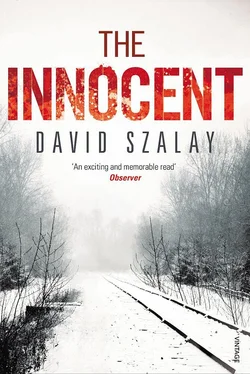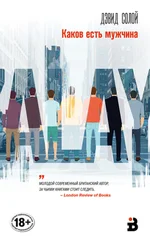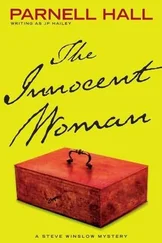It has started, and he turns up the volume. Within the first few minutes, Kompalla, the West German referee, penalises two of the Canadian players, and soon the horn sounds – with a two-man advantage the Soviets have scored. A minute later, Kompalla penalises another Canadian, who smashes his stick on the ice and yells foreign obscenities. When Kompalla increases the penalty, the Canadian makes to attack him with the stub of his stick. His teammates prevent him. The atmosphere is tense and ugly. The first period ends 2–2.
The Soviets score early in the second and, sensing a wavering of their opponents’ self-belief, they attack implacably, trying to press home the win while they have the psychological upper hand. It seems to work. In the swish and smash of the event, they surge into a two-goal lead. And now, surely, it is time to start thinking of victory.
A minute into the final period the Canadians score. The next ten minutes seem to last an hour. The tension, the fear, are more intense than at any time in the entire series. Then the Canadians score again. One of their players smashes his way through the Soviet defence like a maniac. Tretiak saves, or so it seems for a fraction of a second, until a second Canadian slides in to whack home the puck. And then something happens. There is shouting. The horn has not sounded and the Canadian team staff are shouting at the match officials. The situation threatens to descend into a melee … Aleksandr is suddenly aware of another voice mingling with the shouting from the radio, and Ozerov saying, ‘ I don’t … I don’t know what’s happening …’ Someone out in the street, shouting ‘Uncle Sasha!’ Standing impatiently, he throws open the window and looks out. ‘ I think the goal’s been given ,’ Ozerov is saying. His nephew, Andrey Ivanovich, is standing there in the damp darkness.
‘Andryusha,’ Aleksandr says, surprised. ‘What is it?’
‘My father’s had a heart attack.’
Aleksandr says nothing.
‘ Yes. It’s been given. The score is 5–5 …’
‘I’m going to the hospital now,’ Andrey says.
‘I’ll … I’ll come with you.’
Without turning off the radio – ‘ Maltsev passes to Mikhailov, who skates forward …’ – he fumbles on his overcoat and hat. Andrey was wearing neither – that was how he knew, as soon as he saw him, that something terrible had happened.
He is waiting at the wheel of his father’s Lada. He looks like Ivan, and it is strange to see him there, sitting in that seat, smoking with such similar mannerisms. He shoves the engine into gear, however, with an unsolicitous violence that would make his father wince.
‘What happened?’ Aleksandr says.
‘I don’t know. I wasn’t there. Agata phoned for the ambulance. And they took him to the Vilonov Street hospital! I said to her, “Why didn’t you tell them to take him to the Fourth Department hospital?” They knew where he lived. What did they think?’
‘How is he?’
‘I don’t know. I don’t know.’
Andrey twists down the window and flicks his cigarette-end into the wind. He is forcing the Lada to travel at speed. The engine whines unhealthily.
‘Is he …? Will he …?’
‘Live? I don’t know.’
Aleksandr has never seen his normally phlegmatic nephew so impassioned. He seems furious, on the point of lashing out. He has never got on well with his father. There is an ever-present tension, a truculent edginess, to do with the way that Ivan treated Katya, who now lives with Andrey and his wife.
Aleksandr himself feels nothing. He even finds himself wondering, with a sort of sad shame, who won the ice hockey. It will be over now. ‘Where’s Agata?’ he says.
‘She’s at the hospital. I left her there. Why don’t you have a phone?’
Andrey parks the Lada impatiently in front of the hospital and hurries inside, into the dingy light, the smell of disinfectant and under that the soup-kitchen smell, the wide humid hallways, the sinister quiet.
Agata is wearing a jacket seemingly made of gold sequins, and her face is thick with make-up that has smudged and spread with tears. Her eyes are pink, and she is holding a silk handkerchief. There is a young woman with her, a doctor. They are standing in a passageway next to a trolley on which a man is lying. His eyes are shut, his face grey and swollen. There is a transparent rubber oxygen mask strapped over his nose and mouth. His hair, Aleksandr thinks, looks very obviously dyed. To see him like that, Ivan does not seem the same person. So much so that Aleksandr almost expects to see him standing there with the others. That he is not there, nervously smoking, shocked like everyone else in this moment of family trauma, seems strange and terrible.
‘What’s happening?’ Andrey says. ‘How is he?’
The doctor looks at him sadly. ‘He’s okay.’
‘Is he awake?’
‘He’s had a lot of morphine.’
Andrey says, ‘I want him moved. He can’t stay here.’
The doctor looks puzzled. ‘Moved?’ she says. ‘Where?’
‘To the Fourth Department hospital. I don’t know why they brought him here …’
‘We can’t move him now.’
‘Why not?’
‘He’s too weak.’
‘What are you talking about?’
‘He won’t be able to move for days.’
‘You said he was okay.’
‘He is okay. But he’s very weak …’
‘Please, Andryusha,’ Agata says.
‘He shouldn’t be here!’ Andrey shouts. ‘I want him moved.’
On the wall over the trolley on which Ivan is lying there is a picture, a page from a magazine that someone has put in a plastic frame. The picture is of a smiling little girl feeding a lamb from a horn. When he sees it, Aleksandr’s eyes fill with tears and he lowers his head. Who did that? Who put that picture there? As if it had the slightest hope of offsetting the suffering to which it was witness every day. And yet why else would someone put it there? The innocence of this person, more than the innocence of the image itself, is what moves him. He snorts with emotion, inhales through his nostrils and looks up.
‘I’m sorry, he is here –’ The doctor.
‘And he shouldn’t be! I want him moved!’
‘Please don’t shout.’
‘Andryusha, please,’ Agata’s voice is pleading, tearful.
‘I just told you –’ the doctor says.
‘He shouldn’t be here! Don’t you understand that?’
Aleksandr stares sadly at Ivan’s lifeless face under the transparent rubber of the oxygen mask. Agata has stopped pleading with Andrey. She weeps quietly, her handkerchief over her face, her shoulders shaking. Andrey insists on speaking to the senior doctor, who turns out to be a man in his fifties with hairy ears and a weighty, weary presence. Andrey speaks to him with strained politeness. ‘My father was brought here by mistake,’ he says. ‘I want him moved to the Fourth Department hospital. That’s where he should have been taken in the first place.’
‘He’s too weak to be moved,’ the doctor says.
‘How can he be too weak to be moved? He was moved here, wasn’t he?’
‘That was necessary.’
‘And it’s necessary to move him now.’
‘No, it isn’t –’
‘Yes, it is !’
Aleksandr says, ‘Andryusha …’ and puts a hand on his arm. He throws it off. ‘ No! What do you care?’
‘What do I care? What do you mean? Andryusha!’ With tears in his eyes, Andrey is leaving, walking quickly towards the lift. ‘Andryusha!’ Aleksandr follows him for a few steps. The senior doctor sighs, and lights a cigarette. ‘He’s upset,’ Aleksandr says.
‘I know.’
‘I’m sorry.’
‘He can’t be moved tonight. Or tomorrow.’
Читать дальше












